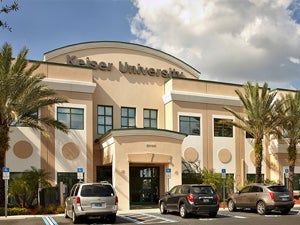
Overview
Dr. Karyn Waters-Zelbovitz is the library director at Lakeland Keiser University, a non-profit, private university in central Florida that subscribes to more than two dozen EBSCO databases including CINAHL Complete and MEDLINE with Full Text. In response to a Healthcare H1-B grant, she designed an evidence-based practice training to support both college students in their research and medical graduates in their employment. In the testimonial below, Dr. Zelbovitz explains in her own words how EBSCO's research interface is helping her students find the evidence-based practice they need to support their research and learning.
EBSCO provides the 'Google-like' search experience that today’s students have come to expect; however, the results they uncover provide the professional, peer-reviewed content that their professors want them to use.
EBSCO provides the 'Google-like' search experience that today’s students have come to expect; however, the results they uncover provide the professional, peer-reviewed content that their professors want them to use.
Customer Testimonial
By Karyn Waters-Zelbovitz, PhD, MLIS
Evidence-Based Practice (EBP) is a scholarly movement that is impacting every discipline and every institution of higher learning. New reforms in educational leadership are asking from kindergarten to doctorate levels, “What evidence supports your statement?” This new emphasis challenges students to find scholarly evidence that validates their statements in presentations, research papers and doctoral dissertations. The problem with living in an age of information overload is that it can be thick with distortion. As an educator, I ask myself, “How can I help students develop critical thinking skills?”
As Lakeland Keiser University’s Library Director, I teach EBP to students seeking degrees in both medical and non-medical fields, from associates to doctorate levels. In this training students learn numerous theoretical foundations, advanced research skills, and how to apply these skills in their research and professional endeavors. Utilizing notable medical databases such as CINAHL Complete or MEDLINE with Full Text provide students with extensive resources. Our university library system offers several database collections, but I find EBSCO to be exemplary.
First, students searching on EBSCO learn new ways to pinpoint desired results through the use of limiters. Only EBSCO has a source type limiter for Evidence-Based Practice. In training students on the uniqueness of EBP, I intend for them to readily see EBP in their search results. Using this limiter ensures that the studies my students find are written by subject-matter experts who had EBP at the forefront of their research. Students appreciate the organization of EBP-structured studies; they provide clear summations of the studies’ participants, methodology, limitations, and outcomes. Most studies have this information, but it must be ferreted out from the text. In contrast, most EBP studies have panels of data that quickly provide the vital evidence of the study for students to critically analyze and apply to their research.
In addition, EBSCO’s advanced search option provides a “select a field” drop-down menu which allows students to focus their searches right from the start by zeroing in on certain metadata fields such as title, abstract, subject and more. For example, if the subject of their research is in the title of the article, they can quickly determine that the study found will be applicable to their paper. Students no longer misspend time reading studies that are irrelevant to their research. By selecting the correct field initially, they can quickly locate suitable studies.
EBSCO also provides the “Google-like” search experience that today’s students have come to expect; however, the results they uncover provide the professional, peer-reviewed content that their professors want them to use. Once students conduct their initial searches, they can apply additional limiters to reduce the number of studies found. They are impressed at the ease and quality of the results they attain and are visibly energized to move forward with their papers.
Finally, students can easily construct reference pages using the citation tool in EBSCO. Instructors in higher education sometimes encounter plagiarism and erroneous citations in student papers. Often, these students do not know how to properly construct a citation. After they see how quickly they can access the proper citation format and build a reference page using EBSCO’s citation tool, generating accurate references is no longer a challenge.
Time is my paramount challenge in EBP training. Once I begin training, it is essential that I choose databases that function solidly, are easily accessible, and provide deep levels of understanding with scholarly results for the students. Having the Evidence-Based Practice limiter in EBSCO is highly beneficial and saves time. As a librarian, I view library instruction quite seriously. I want every teachable moment to count. This is why I trust EBSCO; it is simply the best.